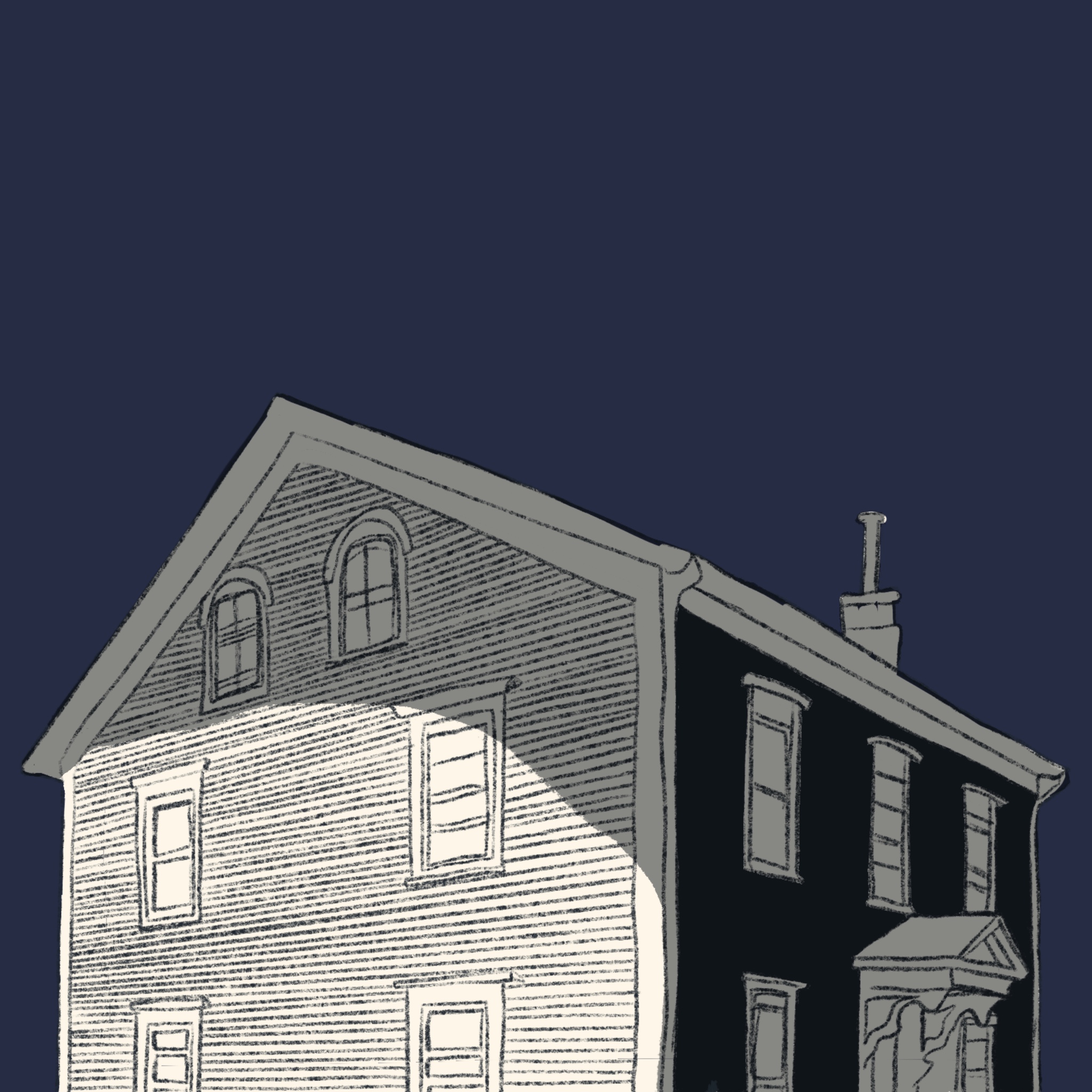Paris Vinnett needed to take a breath.
The 31-year-old New Orleans native lived in Louisiana her whole life until she followed her siblings to the Chattanooga, Tennessee area about six months ago. She moved into her brother’s home in Ooltewah, about 30 minutes outside Chattanooga, where the family rallied around a place where they could slow down and be closer together.
“I have never owned a home,” said Vinnett, now the press secretary for Chattanooga Mayor Tim Kelly’s office. “A large part of what led me to be here … was the fact that it was an opportunity for me to not pay rent, a mortgage, utilities and what have you, and to really get a chance to catch up. … I would not see a path forward to purchasing a home, at least in the near future, without having made this decision.”
Long known for its laid-back atmosphere, access to nature and low cost of living, Chattanooga’s population has grown 3% since 2020, reaching about 187,000 residents last year, according to the US Census Bureau. That growth is one of the factors behind rising housing costs that are making the Scenic City less affordable.
As part of the city of Chattanooga’s recent efforts to increase access to affordable housing, the city is exploring creating a program meant to increase multifamily housing development.

The program would be possible through a new Tennessee law that allows cities to create housing incentives to encourage developers to build attainable multifamily housing. Before Gov. Bill Lee signed the measure into law this year, state statutes blocked local governments from offering zoning incentives in exchange for building affordable units.
The law, which went into effect in July, doesn’t define attainable housing, leaving that up to local governments. Attainable housing often includes homes that are affordable for middle-income renters.
Megan Miles, community development specialist with the city of Chattanooga, said city staff are developing an ordinance to create an incentive program that would align with a recent zoning code update.
“We’re hopeful it will move the needle and create some attainable housing for our bus drivers, teachers, and honestly, a lot of city hall people who can’t afford to live in the city anymore,” Miles said.
Out of Tennessee’s 10 largest cities, only Chattanooga told Streetlight the city is taking steps toward setting up a housing incentives program. City staff in Nashville, Memphis and Knoxville said they’re reviewing the law.
Forever is a long time
Ashley Cash is the city of Memphis’ director of the Division of Housing and Community Development. She said city staff are thinking about how the incentives law could work locally, but one thing that gives them pause is that the law requires developers receiving incentives to provide attainable housing in perpetuity. None of Memphis’ programs require perpetual affordability, she said, and an incentive program with affordability requirements of 15 to 20 years would “be more palatable” to developers.
“We don’t want to set up a program and nobody takes advantage of it because of things they may deem to be essentially a bad business decision for them,” Cash said.
[ Read more of our housing coverage ]
She added that developers working with the city often renew affordability when it expires by applying for low-income housing tax credits or other funding.
Miles said the city of Chattanooga has heard concerns from developers about the perpetuity component. Construction costs are high, and “for a lot of developers, it becomes a math problem of, ‘Are these incentives going to get me to the same place that I would be if I weren’t providing the affordability?’” she said.
For Chattanooga, that makes establishing zoning incentives a balancing act.
“We’re thinking about how we structure this,” Miles said. “How do we do these tradeoffs to make it both interesting for developers to participate so they have an incentive to join, but also so that we are getting the affordability that we want?”
What zoning incentives could Chattanooga pursue?
In recent years, rising housing costs have caused some Tennessee renters to delay their homeownership goals.
The median rent in Chattanooga is about $1,700, according to Zillow, almost double what it was in 2021, when average rents were about $900.
In 2020, the median home sales price in Chattanooga was $230,000, according to a Greater Chattanooga Realtors report. For the month of June this year, the median sales price was about $347,000, a 51% increase in four years.
Miles moved to Chattanooga from Denver, Colorado about a year and a half ago to be closer to family and benefit from a lower cost of living.
“In the time I made the decision to move to Chattanooga and when I actually got here, which may be about a year’s difference, I wound up paying the same amount I was paying in Denver to rent a place here,” Miles said. “So things went crazy.”
[ Read more: When subsidized housing isn’t safe, renters struggle to get help from HUD ]
Based on feedback from local developers, Miles said the city is considering adding the following incentives to the ordinance:
- Lowering the required amount of parking spaces;
- Offering density bonuses, which developers in some cities can use to build more units or add square footage;
- Offering height bonuses, or the ability to construct taller buildings, to developments near public transit stops.
In recent years, Chattanooga has taken steps to build its housing ecosystem, including hiring its first chief housing officer.
“In a place that’s been relatively affordable for a pretty long time, we haven’t really had to do that much work to encourage affordable housing because a lot of our middle class folks and workers had an opportunity to buy a home here. They were able to afford their rent,” Miles said. “The extent to which we need affordable housing now has just changed so significantly that we’ve really needed to think about: What can we bring in to really make this happen?”
Which Tennessee cities might create attainable housing incentives?
Streetlight asked Tennessee’s 10 most populous cities if they’re considering setting up a housing incentives program under the new state law.
How they responded:
- Yes: Chattanooga city staff are developing an ordinance that would create a zoning incentive program, which the city council may consider later this year.
- Reviewing the law and/or may consider starting an incentive program in the future: Knoxville, Memphis, Murfreesboro, Nashville
- Didn’t provide information on whether or not the city is interested in creating an attainable housing incentive program: Clarksville, Franklin, Hendersonville, Jackson and Johnson City
Contact Streetlight editor Mollie Bryant at 405-990-0988 or bryant@streetlightnews.org. Follow her reporting by joining our newsletter.
Streetlight, previously BigIfTrue.org, is a nonprofit news site based in Oklahoma City. Our mission is to report stories that envision a more equitable world and energize our readers to improve their communities. Donate to support our work here.



